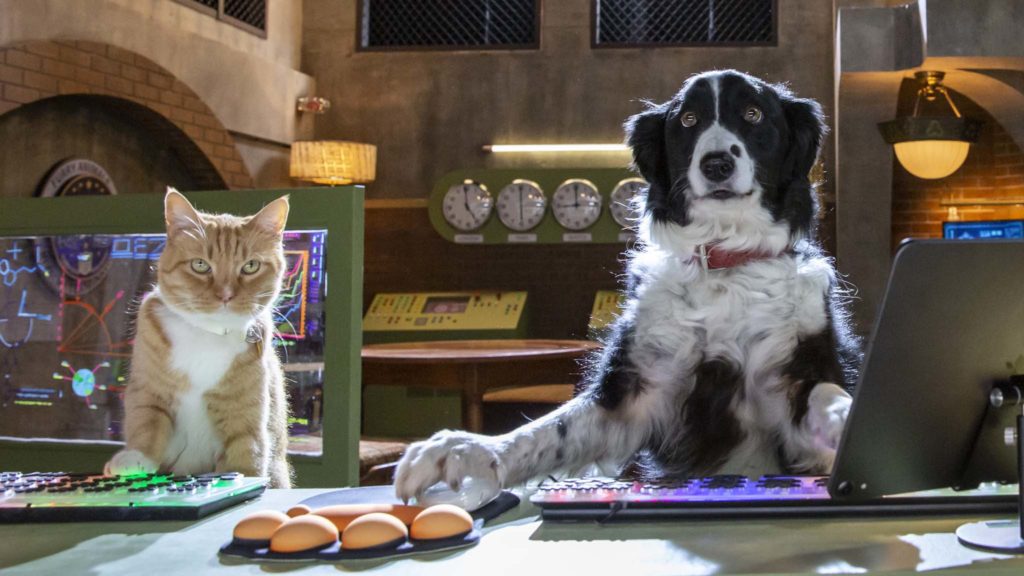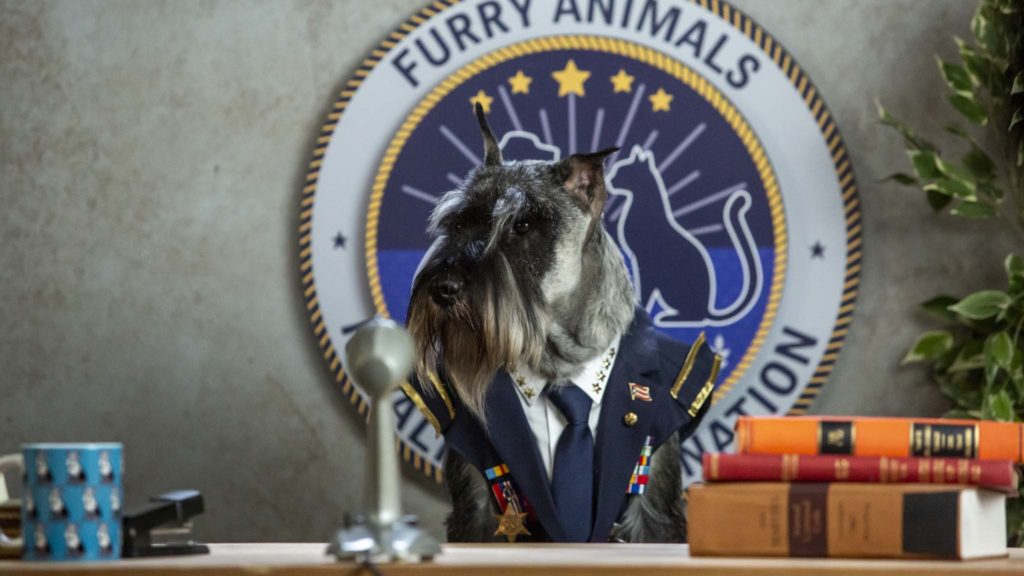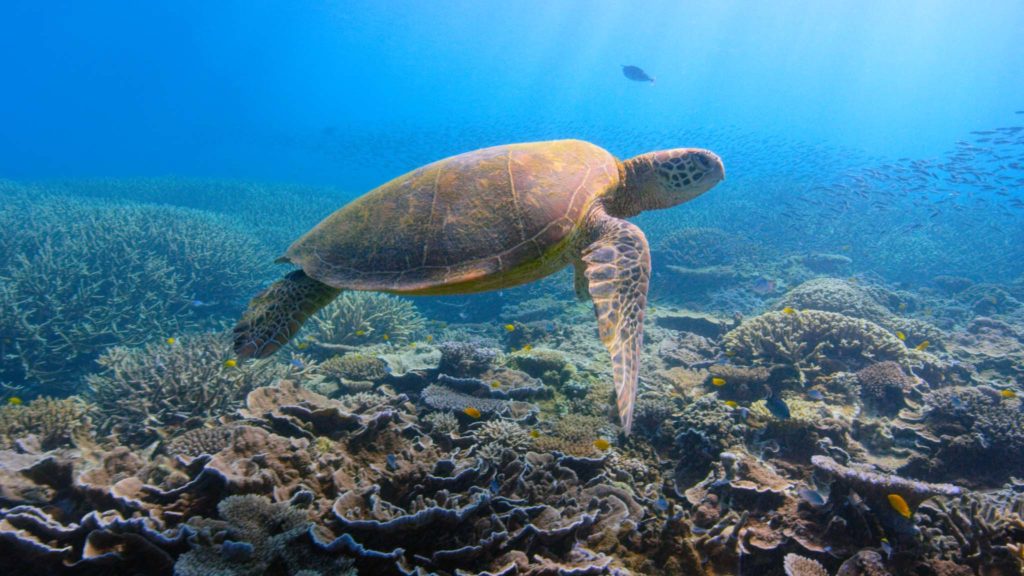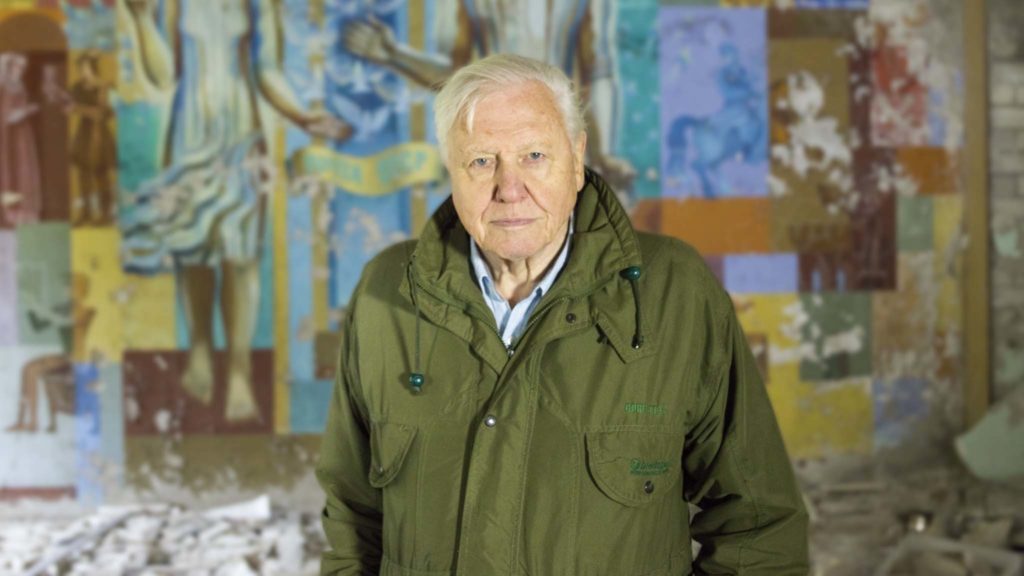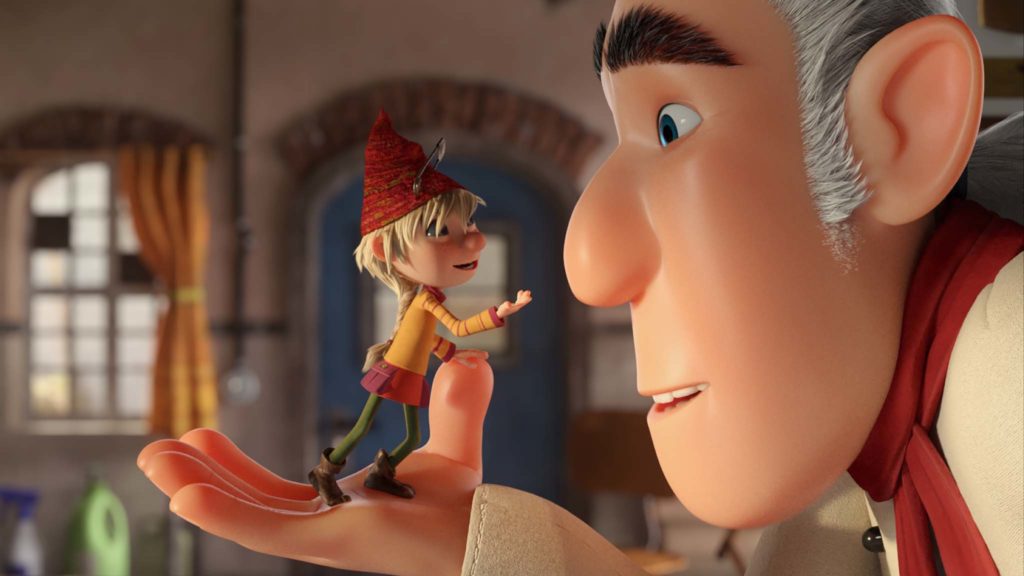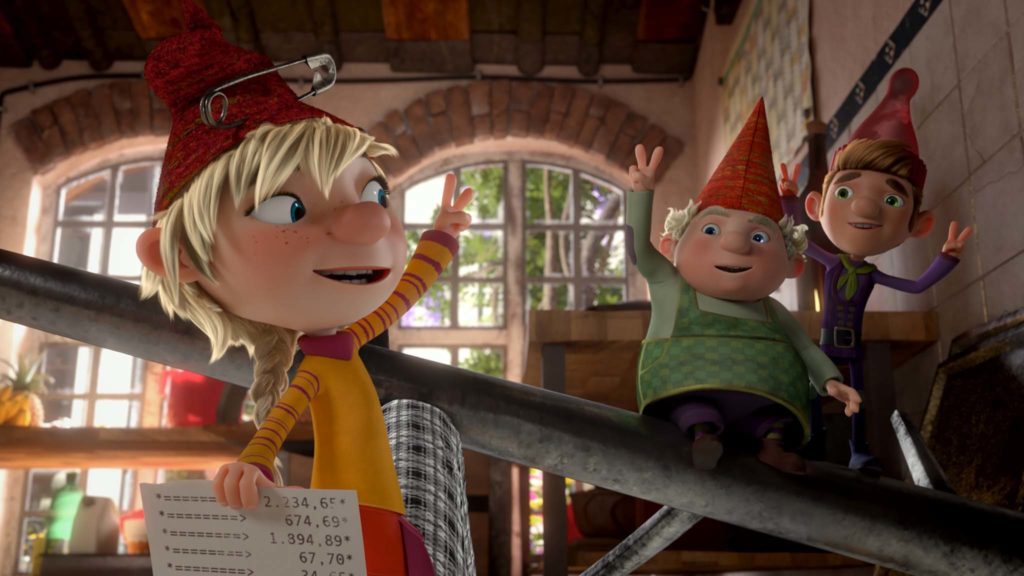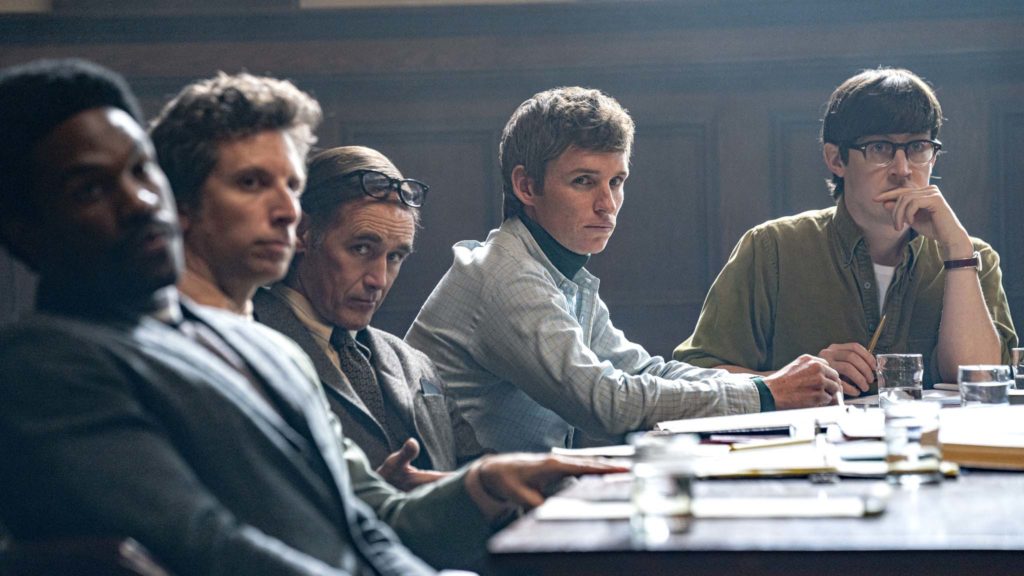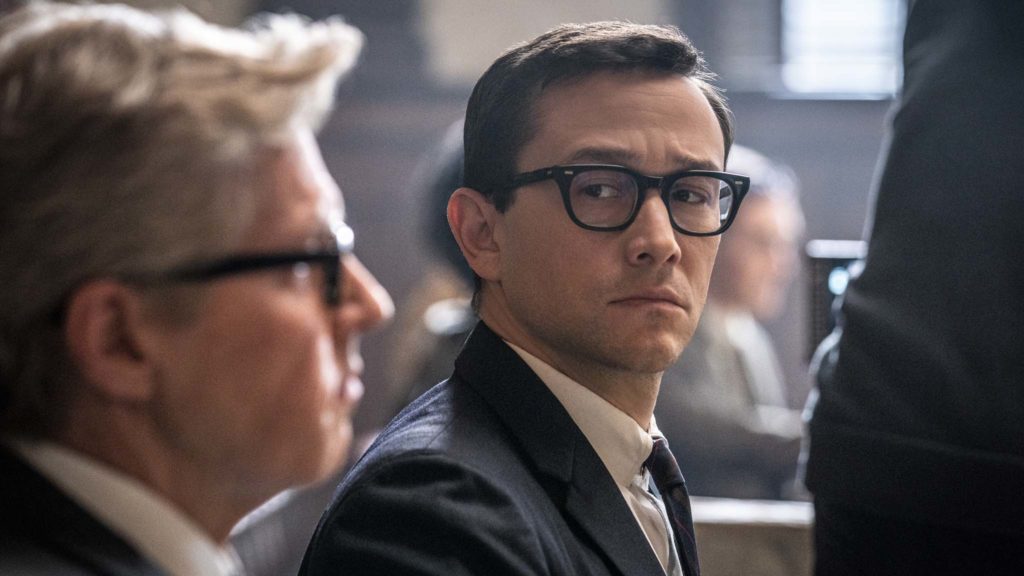Action
Cats & Dogs: Paws Unite! (U)
Review: Ten years after the release of lacklustre sequel Cats & Dogs: The Revenge Of Kitty Galore, a long-running interspecies feud threatens to reignite in director Sean McNamara’s family-friendly caper. The animal cast of Cats & Dogs: Paws Unite! repeatedly hit their marks, performing tricks on command such as pushing a big red button on a flashing control panel or crawling along the ground to evade detection. Unfortunately, other aspects of McNamara’s film are in urgent need of house-training including Scott Bindley’s unruly script, which fails to contrive a ramshackle plot capable of filling a meagre 84 minutes.
The sophistication of humour is pitched low in an opening history lesson, which introduces a secret organisation with the unwieldly title of Furry Animals Rivalry Termination as global peacekeepers of the pet world. Rather than waiting for the audience to spot the acronym, critters loudly snigger the word FART because nothing is funnier than a bodily function. The script’s central sermon – stop staring at your mobile phone screen and enjoy invigorating exercise with a pet – is preached loud and clear by adorable animals including a risk-averse Collie, who lives by the motto “boring is good”. Judged on that basis, the third chapter of the franchise is good.
For around 15,000 years, cats and dogs have been spitting fur balls in each other’s direction. A fragile truce between the species is closely monitored by four-legged operatives from FART. Roger the dog (voiced by Max Greenfield) and Gwen the cat (Melissa Rauch) are risk assessment analysts from the Seattle division commanded by Chief Schnauzer (Noel Johansen). The two pets watch CCTV footage of their stomping ground when their respective human owners, Max (Callum Seagram Airlie) and Zoe (Sarah Giles), are at school.
The FART surveillance network is hacked by “the most nefarious villain the world has ever seen” – a cockatoo named Pablo (George Lopez), who is tired of being left on the perch while cute kitties and puppies quickly find homes. Aided by his tegu lizard hench-reptile Zeke (Paul Dobson), the megalomaniacal bird forms Pets with Out of the Ordinary Pedigree (POOP) and broadcasts a discordant frequency that only cats and dogs can hear. Chief Schnauzer orders Roger and Gwen to avert pet-mageddon flanked by two untrained pooches in their building, Old Ed (Garry Chalk) and Rottweiler enforcer Duke (Michael Daingerfield).
Cats & Dogs: Paws Unite! is unlikely to wag the tail of anyone old enough to care responsibly for a pet. Jeopardy and suspense are strangers to the screen and a romantic subplot involving Airlie and Giles’ air-brushed teens is unnecessary padding. No animals were harmed in the making of a fleetingly violent final showdown, which is as much of a relief as the brisk running time.
Find Cats & Dogs: Paws Unite! in the cinemas
Documentary
David Attenborough: A Life On Our Planet (PG)
Review: In an illustrious career which began on screen in September 1954, natural historian Sir David Attenborough has been fortunate to travel to almost every nook and cranny of our fragile world in search of life in its myriad, wondrous forms. In the 13-part series Life On Earth, he memorably travelled to Diane Fossey’s mountain gorilla sanctuary in Rwanda and enjoyed a playful encounter with primates on camera. The Living Planet and Trials Of Life continued to open viewers’ eyes to hidden marvels using the latest filming techniques.
More recently, The Blue Planet took a fascinating dive into shimmering depths to document previously unseen marine life and two series of Planet Earth had us biting nails down to the cuticle when a newly hatched iguana ran a slithering gauntlet of racer snakes in the Galapagos Islands. Now 94, Sir David presents an urgent and sobering documentary directed by Alastair Fothergill, Jonnie Hughes and Keith Scholey, which he describes as his witness statement and a vision for the future. Over the course of 83 minutes, Sir David looks back over highlights from his career and ruminates on the relentless destruction of wild habitats in the name of mankind’s progress.
Using the area of Ukraine close to the Chernobyl nuclear plant as a prime example of nature’s endurance, the veteran broadcaster implores everyone to contribute to a genuinely sustainable society. “This is not about saving our planet. It’s about saving ourselves,” he solemnly intones. His film is a measured, polite and articulate call to arms that largely eschews the kind of didacticism and shock tactics that might quickly mobilise an army of social media warriors through shared video clips. Every frame is lovingly crafted and snippets dredged from the archives are expertly chosen to underline the bleak central message about our devastating impact on habitats.
In 1937, 66% of the Earth’s vibrant wilderness remained intact. Today, that figure has reduced to 35%. If we continue to level rainforests, “where evolution’s talent for design soars”, our legacy for future generations will be unsustainable population growth, famine and self-annihilation. The sobering image of a lone orangutan perched atop a branchless trunk in a sea of fallen trees powerfully illustrates the wanton destruction.
Sir David’s proposed solution, reserved for the final 30 minutes, includes a carefully calibrated approach to fishing, eliminating meat from diets and limiting birth rates. “If we take care of nature, nature will take care of us,” he suggests with twinkly eyed determination. A thriving, lush ecosystem that has slowly consumed the concrete cadaver of Chernobyl backs up his assertion that as the dominant species, it is our pressing responsibility to “rewild the world”. David Attenborough: A Life On Our Planet premieres in cinemas before it settles permanently on Netflix.
Find David Attenborough: A Life On Our Planet in the cinemas
Animation
The Elfkins (PG)
Review: A good heart and a generous spirit bake the difference in director Ute von Munchow-Pohl’s computer-animated odyssey, inspired by the cautionary tale of the Heinzelmannchen of Cologne. Dubbed rather than subtitled for young audiences on this side of the English Channel, The Elfkins appropriates a couple of key ingredients from Pixar’s Oscar-winning 2007 comedy Ratatouille to unite two worlds in pursuit of a perfectly flaky tart and moreish macaron. Munchow-Pohl’s recipe largely ignores narrative and visual sophistication and the surprisingly quick cooking time, 77 minutes, risks an unappealing soggy bottom especially when the script insists on drizzling on the syrupy sentimentality.
Technical limitations to the animation are evident in cutesy character design and the renderings of a baby and dog, which play pivotal roles in a frenetic chase sequence around city streets. Tellingly, shelves laden with baked goods heaving with brightly coloured frosting and sprinkles fail to convince stomachs to rumble. The thorny, and timely, question of elf and safety in a working kitchen that serves cakes to the public is casually ignored to move the linear plot from dough to doh! as quickly as possible.
For centuries, residents of Cologne have been raised on bedtime stories of benevolent gnome-like creatures, who visit the city under the cover of darkness and lovingly carry out repairs. The legend is true. Elfkins live below ground in the sewers in a quaint village hidden from prying eyes. Elders Brimur (voiced by Matthew Burton) and Vendla (Suzanne Ritter) encourage members of the tribe to nurture a craft – carpentry, embroidery, shoemaking – while instilling a fear of hulking humans.
Spirited outcast Elfie (Rivka Rothstein) has yet to discover her artisan calling. Her latest invention, an automated turnip harvester, malfunctions badly and Vendla loudly proclaims, “You’ll never turn into a real Elfkin”. Elfie vows to prove her doubters wrong and she ventures above ground to meet a human, who can teach her a craft. Two fellow Elfkins, Buck (Valentin Beinhold) and Kipp (Liam Mockridge), follow her and they encounter kindly baker Theo (Erik Hansen), whose family business is about to be bulldozed by his jealous brother Bruno (Steve Jacob). Elfie pledges to save the ailing enterprise if Theo will teach her to bake with brio. An unlikely union is forged and hungry customers flock to sample Theo’s famous fresh cream spires.
The Elfkins rises under the gentle heat of Munchow-Pohl’s direction, which prioritises whirling spectacle over heartfelt emotion. Bruno is a tepid antagonist and there is an inevitable sweetness to the resolution of hostilities between estranged siblings. Jan Strathmann’s script briskly kneads together required elements but lacks the exquisite finishing touches that could elevate a half-baked caper into a truly unforgettable confection.
Find The Elfkins in the cinemas
Drama
The Trial Of The Chicago 7 (15)
Review: Justice isn’t simply blind in The Trial Of The Chicago 7, it’s also deaf, mute and untouched by common decency. Aaron Sorkin, Academy Award-winning screenwriter of The Social Network, ventures behind the camera to stylishly dramatise the aftermath of the anti-Vietnam War demonstration against President Lyndon B Johnson outside the 1968 Democratic National Convention. He splices black-and-white news footage of clashes between protesters and police, armed with tear gas and batons, with his own blood-soaked recreation of events in Lincoln Park.
Those unsettling scenes are related in flashback after John N Mitchell, US Attorney General for the incoming Nixon administration, lights the fuse on a high-profile trial against eight men for conspiracy to cross state lines to incite violence. Sorkin’s gift for zinging rat-a-tat dialogue is perfectly suited to a packed courtroom where fractious exchanges between legal teams and an immovable judge raise our hackles and, in one sickening scene, draw uncomfortable parallels to George Floyd and the Black Lives Matter movement. A starry ensemble cast including Eddie Redmayne, Mark Rylance and Sacha Baron Cohen savour meaty, tub-thumping speeches that prick consciences and bruise over-inflated egos. As one defendants coolly observes: “It’s revolution. We may have to hurt somebody’s feelings.”
Tom Hayden (Redmayne) and Rennie Davis (Alex Sharp), leaders of the Students for a Democratic Society, plan a peaceful chorus of angry voices in tandem with thousands of members of the Youth International Party spearheaded by Abbie Hoffman (Cohen) and Jerry Rubin (Jeremy Strong). David Dellinger (John Carroll Lynch), chairman of the National Mobilization Committee to End the War in Vietnam, bolsters the impassioned throng.
The protest ends in a riot and Hayden, Davis, Hoffman, Rubin and Dellinger stand before Judge Julius Hoffman (Frank Langella) alongside Bobby Seale (Yahya Abdul-Mateen II), National Chairman of the Black Panthers, and fellow protesters John Froines (Daniel Flaherty) and Lee Weiner (Noah Robbins). Civil rights lawyer William Kunstler (Mark Rylance) and Leonard Weinglass (Ben Shenkman) represent the so-called Chicago 7 – Seale’s attorney Charles Garry is indisposed following gall bladder surgery – while the prosecution is led by Richard Schultz (Joseph Gordon-Levitt) and Tom Foran (JC Mackenzie).
The Trial Of The Chicago 7 ricochets at speed between witness testimony and flashbacks, juxtaposing tensions between the various factions at the defence table with horrifying explosions of brutality in August 1968. The script is littered with razor-sharp one-liners, like when Weiner quietly acknowledges his lowly public profile next to headline-grabbing figureheads Hayden and Hoffman and quips: “This is the Academy Awards of protests and as far as I’m concerned, it’s just an honour to be nominated.” Undoubtedly, Sorkin’s polished picture will be in contention in numerous categories at next year’s Oscars. Fifty years after the fact, justice may be served with a glossy Hollywood veneer.
Find The Trial Of The Chicago 7 in the cinemas


